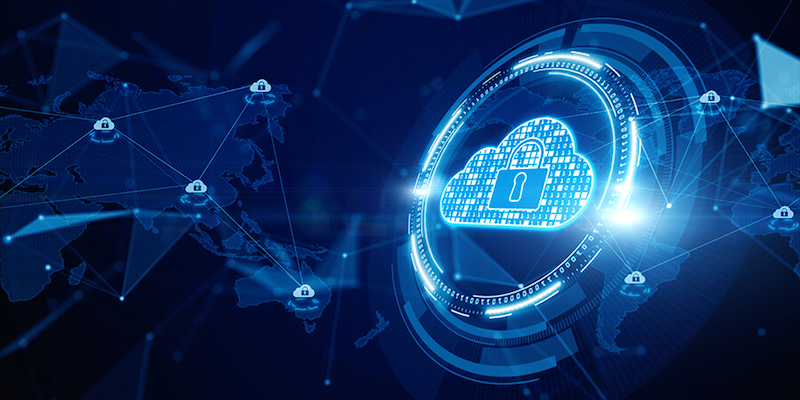Cyber attacks are growing more common, and Irish businesses are not being spared. From large firms to small local shops, no one is completely safe from today’s online threats. As more companies move their services online and rely on cloud systems, cybercriminals are finding new ways to attack. These threats are not only increasing in number, but they are also getting smarter, faster, and harder to detect.
As we head into 2025, it is more important than ever to understand the biggest cybersecurity risks. In this blog, we will look at the main threats facing Irish businesses, how they work, and what you can do to stay protected.
What is Behind the Rise in Cyber Attacks on Irish Businesses?
Cybercrime is no longer something that might happen far away. It has become a common problem for businesses across Ireland. Figures released earlier this year show that 90% of Irish businesses have suffered financial loss or had their work badly affected due to a cyberattack in the past five years. Of those affected, 6% faced serious damage that left a lasting impact.
While large international firms often appear in news stories after an attack, small local businesses are actually more at risk. Many do not have the budget, tools, or support to protect themselves properly. This makes them an easy target for cybercriminals.
Let's take a closer look at what is driving this rise in attacks, and why so many Irish businesses are now under pressure.
More Businesses Are Moving to Online Systems
More companies are using digital tools and cloud services to run their work and store their data. This can be helpful, but it also brings new risks if systems are not set up and checked properly from the start.
Lack of Training and Cyber Awareness
Many workers are unsure how to spot fake messages, scam emails, or harmful links. Without the right training, it only takes one wrong click to let someone into the system.
Smaller Businesses Often Don’t Have IT Teams
Larger firms often have in-house support or hire outside help to keep their systems safe. Smaller businesses may not have this kind of support, which means they are often open to attack without even knowing it.
Cybercriminals Are Using Smarter Tools
Criminals are using new tricks to break into systems. Some use fake messages, others use software that watches for gaps. These tools can work fast and are harder to spot than ever before.
The first step in staying safe is knowing what you're up against. Below, we'll go through the top cybersecurity threats that Irish businesses should be aware of in 2025.

5 Biggest Cybersecurity Threats Facing Irish Businesses in 2025
Cyber threats are changing fast, and Irish businesses need to stay alert. The five threats below are some of the most common and serious risks expected in 2025. Each one can cause major problems if not dealt with in time.
Let's take a look at what these threats are and how they can affect your business.
Ransomware-as-a-Service (RaaS)
This is a type of attack where hackers lock your files and ask for money to give them back. What makes it worse is that almost anyone can now launch these attacks by paying for ready-made tools online. This means the number of attacks is going up, and small businesses are often easy targets.
Cloud Security Problems
Many businesses store data in the cloud, but not all cloud systems are set up safely. If settings are wrong or updates are missed, attackers can break in and steal important files. Without good protection, cloud systems can become a weak spot.
Social Engineering Attacks
These attacks trick people into handing over private details, like passwords or bank info. A fake email, a call pretending to be from your bank, or a message from someone pretending to be your boss can all be used to fool staff. These tricks are getting better and harder to spot.
AI-Powered Attacks
Cybercriminals are now using smart tools to make their attacks more convincing. Some use fake voices or messages that sound real. Others use software that learns how your systems work, then finds the best way to break in. These new tools are fast and often go unnoticed.
Supply Chain Attacks
If one of your suppliers or service providers is attacked, it can affect your business too. Hackers might break into their systems and use them to reach yours. This kind of attack is hard to see coming, which makes it even more risky.
4 Other Prominent 2025 Cybersecurity Threats
Business owners must now take extra care to stay one step ahead of online threats, which seem to be changing faster than ever. On top of the major risks already discussed, there are a few other dangers that could catch many people off guard in 2025.
Let's take a quick look at four more threats that are expected to cause trouble for Irish businesses in the months ahead.
Man-in-the-Middle (MitM) Attacks
This type of attack happens when someone quietly slips between two people or systems that are trying to send information. Without knowing it, a person could share private login details or payment data with an attacker watching in the background.
Denial of Service (DoS) Attacks
These attacks work by flooding a website or system with too many requests at once. When this happens, the service slows down or stops working, which can badly affect any business that relies on being online to serve customers or manage tasks.
Credential Stuffing
Cybercriminals often use email and password details stolen in past data leaks to try and break into new systems. If people use the same password across different accounts, it makes this kind of attack much more likely to succeed.
Insider Threats
Sometimes the danger doesn't come from outside. People working inside a company, whether by mistake or on purpose, can put data at risk. This could be from sharing files they shouldn't or falling for fake emails that let attackers in.

Conclusion
Cyber threats are growing fast, and Irish businesses of all sizes are feeling the pressure. From ransomware and cloud risks to insider mistakes and smart attacks, the dangers in 2025 are real and rising. Knowing what to look out for is the first step to staying safe, but taking action is just as important.
If you're unsure where to begin or need support protecting your business, Radium is here to help. Our team can guide you through the biggest cybersecurity threats and put the right steps in place. Talk to Radium today and take control of your digital safety.

